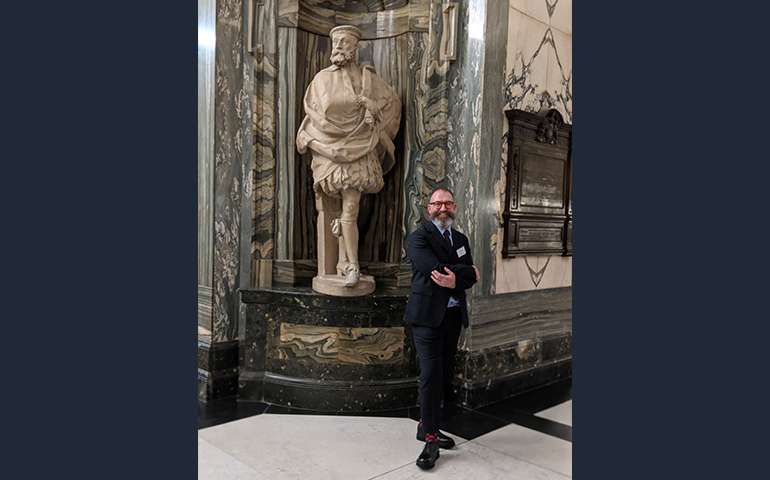As well as volunteering through our Clearcast for Better CSR program, staff have been busy with personal pursuits, some of which benefit their local community. Jan Cooper, Senior Copy Group Executive, is a perfect example of this. In this blog he tells us about being sworn in as a Magistrate, the types of trials he sits in on, and how this all links back to clearing ads.
By Jan Cooper, Senior Copy Group Executive
Wednesday 4th December 2019. Court One. The Old Bailey.
This wasn’t the trial of the decade, but it was the date and place I was sworn in as a magistrate by the grandly titled Common Serjeant of London, a senior judge at the Central Criminal Court. This occasion was the culmination of three observations in two different magistrates’ courts, an application form, two of the most gruelling interviews I’ve ever undertaken, and two anxious years of waiting.
I’ve wanted to volunteer in something beyond the occasional marshalling I do at my local Parkrun for a while. Having previously completed a law degree and worked in legal publishing, I wanted to utilise those skills, along with those that I use every day at Clearcast, in a role that makes a difference in the community. And so, becoming a magistrate seemed perfect.
What is a Magistrate?
A magistrate is a volunteer who hears criminal cases in a magistrates’ court in their community. All criminal proceedings start in the magistrates’ court with only the most serious crimes being sent to the Crown Court for a jury trial. This means that 95% of criminal matters start and end in the magistrates’ court. There’s no jury involved but the justices, as magistrates are called, sit in benches of two or three and decide matters of fact. To give guidance on the law, each bench has a legal adviser who is a qualified solicitor.
After my swearing-in, an intensive three-day training course, and more observations with a mentor, I was ready to sit in court six of my local magistrates’ court in South West London just as the pandemic struck and the first lockdown was a week away. It was a remand court that deals with people who’ve been arrested and we had to make decisions about whether they should be bailed or remanded into custody until the next hearing. It was at this time I fully realised the importance of what I was doing, to decide whether to remove someone’s liberty is a great responsibility.
Over the last two and a half years magistrates’ courts continued to sit throughout the lockdowns. I’ve sat on trials involving shoplifting, assault, and stalking, to name just a few. I’ve also sat in traffic trials at one of my other local courts covering everything from running red lights to speeding and collisions.
How this works while clearing ads full-time at Clearcast…
I do all of this whilst maintaining my full-time job at Clearcast, clearing advertising copy. Clearcast has been very supportive of my application, allowing me to adjust my hours so I can sit once a fortnight. They appreciate the skills I’ve gained as a magistrate, such as structured decision-making and the collaborative process of reaching a verdict. These are the exact skills that are needed when assessing script submissions.
It’s thanks to Clearcast that I’m able to make this positive impact in my local community.
If you have any questions about Clearcast for Better or this blog, contact us.



